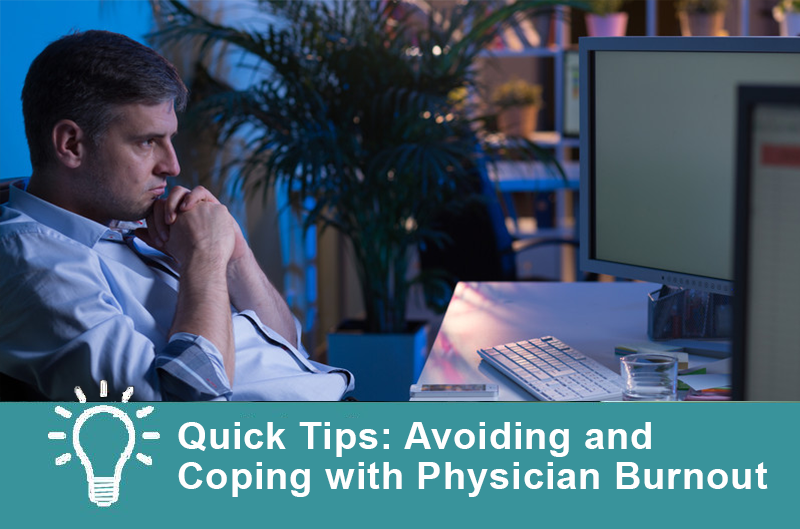How common is physician burnout? One study estimated that 50% of U.S. physicians have “work-related distress” (Shanafelt TD, et al, Mayo Clin Proc. 2015;90(12):1600-13).
John DiLallo, MD, a professor of psychiatry at the New York University School of Medicine, offered advice that might help you deal with practice stressors in The Carlat Psychiatry Report. Subscribers can read the full article here.
Given that burnout is defined by emotional exhaustion, detachment, and a sense of ineffectiveness, Dr. DiLallo says you should push back by focusing on vitality, engagement, and self-efficacy. If you are feeling practice stress, he recommends using the following techniques:
Make a conscious effort to get reengaged with your clinical work. Rediscover and contemplate the idealism and intellectual curiosity that got you into psychiatry in the first place.
Subscribers have access to all the articles in The Carlat Psychiatry Report's March 2019 issue on burnout.
John DiLallo, MD, a professor of psychiatry at the New York University School of Medicine, offered advice that might help you deal with practice stressors in The Carlat Psychiatry Report. Subscribers can read the full article here.
Given that burnout is defined by emotional exhaustion, detachment, and a sense of ineffectiveness, Dr. DiLallo says you should push back by focusing on vitality, engagement, and self-efficacy. If you are feeling practice stress, he recommends using the following techniques:
- Participate in mindfulness meditation. Which consists of observing present moment events both inside and outside of yourself. Regular meditation, for at least 5-10 minutes per day, helps you react to stress thoughtfully rather than automatically.
- Write down stories about your personal experiences in clinical practice. This helps to foster reflection, personal meaning, and re-engagement with clinical work.
- Talk to colleagues about what’s stressing you out. This can be in the setting of a regularly scheduled group, or simply informal conversations about the stresses of work.
- Minimize administrative work. This may involve a financial investment in an assistant, but the cost can be minimal, especially if you hire a virtual assistant, who can work a few hours a week from a remote location.
- Reinvigorate yourself professionally. Developing new skills such as teaching, consultation, or business management.
Make a conscious effort to get reengaged with your clinical work. Rediscover and contemplate the idealism and intellectual curiosity that got you into psychiatry in the first place.
Subscribers have access to all the articles in The Carlat Psychiatry Report's March 2019 issue on burnout.


_-The-Breakthrough-Antipsychotic-That-Could-Change-Everything.jpg?1729528747)



